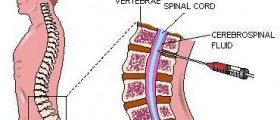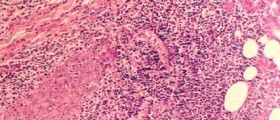
The women tend to feel awkwardly when their menstruation is approaching and that is due to certain changes that occur in their body. The unfertilized egg is ejected from the body after ovulation through menstruation along with the lining of the uterus. It is quite expectable that all these changes in the body reflect somehow on the physical and psychological state of the women.
Premenstrual syndrome
Premenstrual syndrome refers to the group of symptoms or signs that are associated with menstrual periods and that usually make a negative impact on the woman’s everyday life. The symptoms of the premenstrual syndrome begin to emerge 5 to 11 days prior to the onset of menstruation and they end with the beginning of the menstruation or shortly after it starts.
Premenstrual syndrome is considered to be a hormonal disease since the levels of estrogen and progesterone considerably fluctuate in the period before the menstruation, thus causing certain physical and psychological discomforts in women. It is estimated that even 70 to 80% of all women face premenstrual syndrome and its numerous symptoms, but only about 10% of them experience severe premenstrual syndrome symptoms, which greatly interfere with their everyday life, work and relationship. Furthermore, it is also estimated that about 85% of women experience some symptoms of this condition, especially in their childbearing ages from 20 to 40 years of age.
Symptoms of premenstrual syndrome
About 150 different symptoms are related to the premenstrual syndrome and the women with this disorder will experience some of them, but their severity, intensity and number will probably vary from one woman to another. Furthermore, women with premenstrual syndrome may have some symptoms one month, but the different ones the following month.
The most typical signs of the premenstrual syndrome are abdominal bloating, breast tenderness and mood swings. Furthermore, anxiety, depression and irritability, as well as food cravings, pain in the muscles and joints and insomnia, are also some of the numerous symptoms associated with premenstrual syndrome.
Treatment for premenstrual syndrome
Premenstrual syndrome symptoms may be alleviated by taking certain medicines and supplements, such as, for example, those that contain calcium, magnesium and vitamin E. Chaste tree and evening primrose oil are also regarded to be very effective in relieving the symptoms of PMS. Sugar and salty foods, as well as caffeine and smoking, can only aggravate the symptoms of PMS and thus they should be avoided. Healthy diet and regular exercise are very helpful when the premenstrual syndrome is in question.








-Causes,-Symptoms,-Diagnosis-And-Treatment_f_280x120.jpg)

-Causes,-Symptoms,-Diagnosis-And-Treatment_f_280x120.jpg)






Your thoughts on this
Loading...